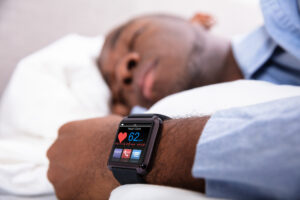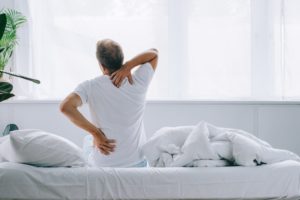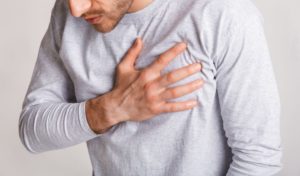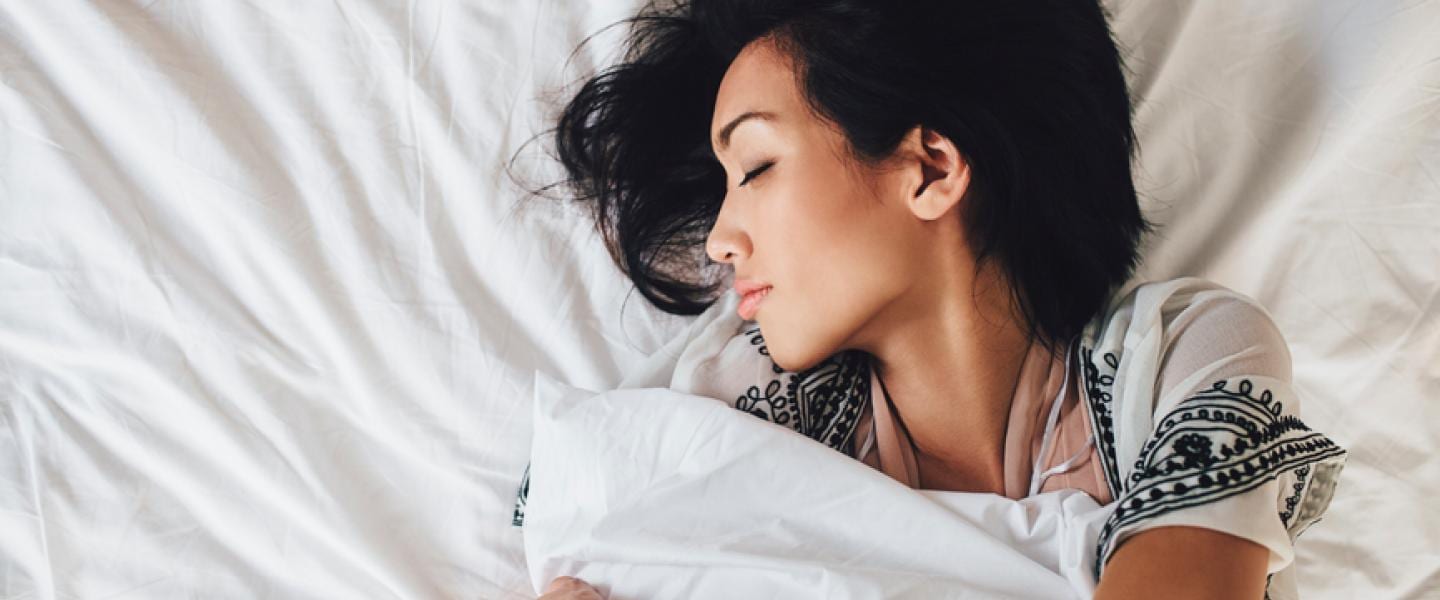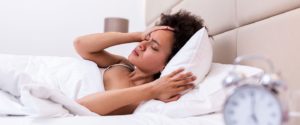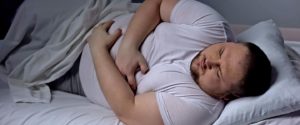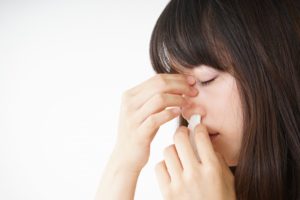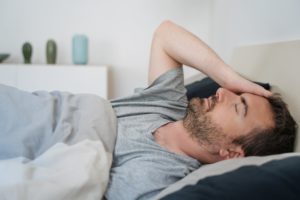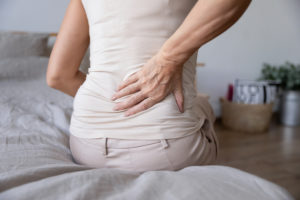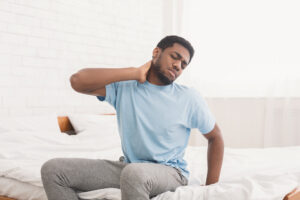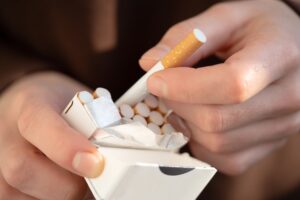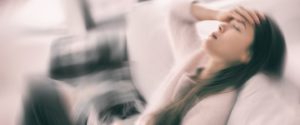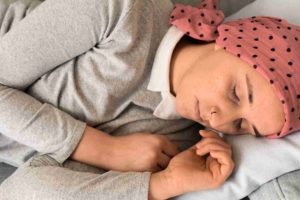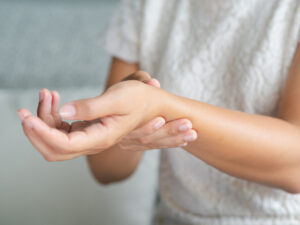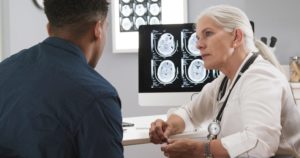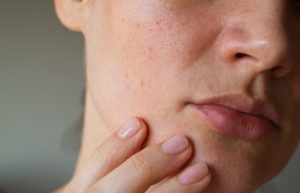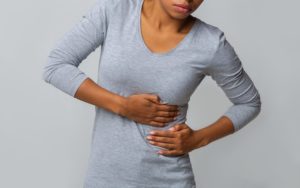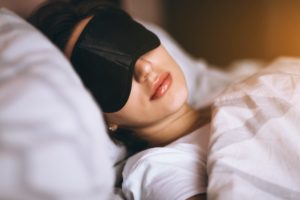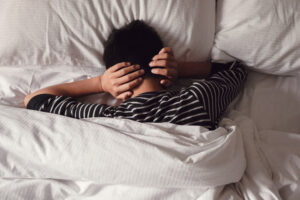When you buy through our links, we may earn a commission. Products or services may be offered by an affiliated entity. Learn more.
Morning Headaches: Why Do I Wake Up With a Headache?
- Sleep apnea and other sleep disorders
- Insomnia or fragmented sleep
- Dehydration
- Poor sleep posture or neck strain
- Teeth grinding (bruxism)
- High blood pressure
- Hangover from alcohol consumption
- Caffeine withdrawal
- Certain medications or supplements
- Migraine or tension headache disorders
If you find yourself frequently waking up with a headache, you’re not alone. Approximately 1 out of every 13 people experiences morning headaches. These headaches typically affect women more than men and are most frequent in people between the ages of 45 and 64.
A number of sleep or health disorders, as well as personal habits, can trigger a headache when you wake up. Sleep apnea, migraine, and lack of sleep are common culprits. However, teeth grinding, alcohol use, and certain medications can also cause you to wake up with a headache. Sometimes your morning headache comes from a combination of disorders or habits.
Looking to improve your sleep? Try upgrading your mattress.
Why You Wake Up With a Headache
As you transition from sleep to wakefulness, parts of your brain start to “wake up” too. Your brain becomes more responsive to changes in your body position, touch, and sound. During this period of heightened sensitivity, you may be more susceptible to pain.
Additionally, the hypothalamus in the brain is involved in both sleep and pain processes. The hypothalamus regulates your natural circadian rhythms and sleep cycles and modulates sensation and pain. Disturbances in the hypothalamus during sleep affect your ability to tolerate pain. As a result, while you may not have felt pain as you slept, you may feel it in the morning.
Types of Headaches
Not all morning headaches feel the same—or come from the same cause. Understanding the type of headache you’re experiencing can help you figure out what’s triggering it and how to find relief. Here are some of the most common types of headaches that occur in the morning.
- Migraine: Migraines (moderate to severe recurring headaches) often occur in the morning. People who experience migraines are much more likely to struggle with insufficient sleep, and recurrent sleep loss can trigger migraines.
- Tension Headaches: A dull, aching pain often felt on both sides of the head, tension headaches can be caused by stress, poor sleep posture, or muscle tension in the neck and shoulders.
- Cluster Headaches: Severe, stabbing pain typically centered around one eye, cluster headaches often occur at the same time each day—sometimes waking people from sleep.
- Hypnic Headaches: Known as “alarm clock headaches,” hypnic headaches are rare and occur only during sleep, often waking people in the early morning hours.
- Rebound Headaches: Also called medication overuse headaches, these occur when pain relievers are taken too frequently and can lead to daily or early morning head pain.
- Nocturnal Hypertension Headache: High blood pressure during sleep can trigger headaches that are typically felt upon waking, sometimes accompanied by dizziness or blurred vision.
- Intracranial Structural Headache: These headaches stem from underlying issues in the brain or skull, such as tumors or pressure imbalances, and usually occur with other neurological symptoms.
Causes of Morning Headaches
Sleep disorders commonly trigger morning head pain, but there are numerous possible causes for waking up with a headache.
Sleep Apnea
Morning headaches are a common symptom of obstructive sleep apnea (OSA), which causes disrupted or stopped breathing during sleep. In one study of people with OSA, 29% reported experiencing morning headaches.
While the exact cause of these sleep apnea-induced headaches is unclear, it’s often attributed to loud snoring, another common symptom of OSA. You can treat your sleep apnea using a CPAP machine, which may reduce or eliminate your morning headaches.
Snoring
Not all people who snore have sleep apnea. So if you snore, it may be the cause of your morning headaches. In one study of 268 frequent snorers, 23.5% regularly woke with headaches in the morning. Having a history of migraines, insomnia, or psychological distress raised the likelihood of a morning headache among this group.
Sleep Loss and Insomnia
Because sleep deprivation is a common cause of morning headaches, people with insomnia also have a high risk of experiencing morning headaches. People with this sleep disorder struggle to fall asleep or to stay asleep. As a result, they often do not get sufficient sleep and may feel unrested or sluggish during the day.
Circadian Rhythm Disorders
People with circadian rhythm disorders have morning headaches more frequently than those without a sleep disorder. Circadian rhythm disorders develop when your body is misaligned with the standard sleep-wake rhythms in a 24-hour cycle. Because of this misalignment, you may get insufficient sleep, which can trigger a headache when you wake up.
Oversleeping
Oversleeping or sleeping too much can also affect your morning headaches. Both low-quality sleep and longer sleep are associated with more intense headaches when you wake up. The extra shuteye can contribute to an oversleeping headache.
Sleep Posture or Neck Strain
Your sleep posture and position can lead to tension, potentially triggering poor sleep and headaches. Choosing a supportive pillow, investing in a supportive mattress, or changing your sleep position can help relieve this tension.
Dehydration
Dehydration is a common and often overlooked cause of morning headaches. When your body lacks enough fluids, it can lead to reduced blood volume and lower oxygen flow to the brain, which may trigger pain or pressure sensations in the head. Going several hours without water while sleeping—especially if you snored, breathed through your mouth, or consumed alcohol the night before—can leave you mildly dehydrated by morning.
Exploding Head Syndrome
Exploding head syndrome is a harmless but startling sleep-related phenomenon in which a person hears a sudden loud noise—like a bang, crash, or explosion—just as they’re falling asleep or waking up. Despite the dramatic sensation, there’s no actual sound or physical harm.
While not technically a headache, it can be confused with one due to the stress, anxiety, or jolt it causes. Some people may wake up with tension or a lingering headache-like feeling. The exact cause isn’t fully understood, but it’s thought to be related to sudden shifts in brain activity during sleep transitions and may be more common during times of stress or sleep disruption.
Bruxism or Teeth Grinding
Sleep bruxism (teeth grinding) or clenching your jaw during sleep can make you wake up with a headache. This forceful and excessive movement also leads to tooth wear, muscle pain, and gum damage. Causes of sleep bruxism include having an irregularly shaped jaw, stress and anxiety, sleep disruption, alcohol use, and coffee.
A dentist can determine if you have sleep bruxism. Treatment often involves wearing a mouthguard at night. Your dentist may also prescribe drugs for pain management and recommend cognitive behavioral therapy to manage stress and anxiety.
High Blood Pressure
When blood pressure rises too high, it can increase pressure inside the skull, irritating pain-sensitive areas. These headaches are often described as dull, pulsating pain—typically felt on both sides of the head—and may be accompanied by other symptoms like dizziness, blurred vision, or a feeling of pressure.
Hangover
Heavy drinking in the evening has a high association with morning headaches. When you drink alcohol, you’re likely to fall asleep faster than usual, but your sleep is likely to be disrupted, and you often wake up earlier. Alcohol also increases urination and loss of fluids, leading to mild dehydration. Headaches are a common side effect of dehydration. Additionally, alcohol can be a trigger for migraines.
Caffeine Withdrawal
Caffeine withdrawal is a common trigger for morning headaches, especially in people who regularly consume coffee, tea, or energy drinks. When you skip or delay your usual dose of caffeine, your blood vessels—which are typically narrowed by caffeine—suddenly expand, increasing blood flow and potentially triggering head pain. These headaches often feel dull and throbbing and may come with fatigue, irritability, or trouble concentrating.
Certain Medications or Supplements
Headaches are also a side effect of some over-the-counter medications and prescription drugs. While you may want to take medication for the head pain, that can contribute to a cycle of chronic headaches. Alternatively, overnight withdrawal from the drug can trigger a headache in the morning.
Drugs that can contribute to headaches include:
- Opioids
- Triptans
- Nonsteroidal anti-inflammatory drugs (NSAIDs)
- Aspirin
- Acetaminophen/paracetamol
- Anti-anxiety medications
Tips to Help Ease Morning Headaches
If you have frequent or daily morning headaches, talk to your doctor about what might be causing them. Consider keeping a sleep diary to track your symptoms and sleep habits and share this with them. They can help you identify the exact trigger or triggers of your morning headaches and review your treatment options.
In addition to treatment specific to your trigger, you can also improve your sleep hygiene:
- Keep a consistent sleep schedule: Go to bed and wake up at the same time each day.
- Exercise regularly: Try to exercise at least several hours before bedtime. Exercising too close to your bedtime may keep you awake longer.
- Stay hydrated: Drink water throughout the day and consider drinking a glass of water before bed (as long as this doesn’t cause you to wake up in the middle of the night to go to the bathroom).
- Limit caffeine and alcohol: An afternoon coffee or a glass of alcohol just before bedtime can keep you up late or disrupt your sleep.
- Adjust your sleep environment: You need a space that’s dark, cool, and with little noise. Limit the use of your bed to only sex and sleep.
- Optimize your bed setup: Use proper pillow support to maintain good neck alignment and reduce tension headaches.
- Find a relaxing bedtime routine: Winding down at the end of the day signals your body that it’s time to sleep. Try a soothing bath, reading, or meditation.
With good sleep hygiene and treatment for the disorder causing your headaches, you may be able to reduce or eliminate your morning headaches. Talk with your healthcare provider to determine the right treatment plan for you.
When to See a Doctor
While occasional morning headaches may not be a cause for concern, frequent or severe headaches shouldn’t be ignored. It’s a good idea to talk to a doctor if you wake up with headaches several times a week, if the pain is worsening over time, or if it’s interfering with your daily life.
Seek medical attention if your headaches are accompanied by other symptoms like high blood pressure, snoring or gasping during sleep, vision changes, confusion, or numbness. These could be signs of an underlying health condition such as sleep apnea, migraine disorder, or a neurological issue.
Frequently Asked Questions
Where do you feel a dehydration headache?
A dehydration headache can either be felt all over your head or in just one spot, like at the back, front, or side. It may feel like a dull, throbbing ache or a sharp or stabbing pain, depending on the severity.
How long after drinking water will a headache go away?
If dehydration is the cause, drinking water can relieve a headache within an hour or, depending on how dehydrated you are and how much water you drink. If you suspect you have a dehydration headache, aim to drink 16 to 32 ounces of water.
What does a barometric pressure headache feel like?
A barometric pressure headache—one that occurs due to changes in atmospheric pressure—sometimes feel like a throbbing or pulsating pain in the head, but they may also feel like pressure or tightness in the temples or forehead. It may worsen with weather changes, especially before storms.
What does a blood pressure headache feel like?
A headache caused by high blood pressure typically feels like a pulsating or pressure-like pain on both sides of the head and may be accompanied by dizziness, nausea, confusion, or vision changes, especially if blood pressure is dangerously high.

Still have questions? Ask our community!
Join our Sleep Care Community — a trusted hub of sleep health professionals, product specialists, and people just like you. Whether you need expert sleep advice for your insomnia or you’re searching for the perfect mattress, we’ve got you covered. Get personalized guidance from the experts who know sleep best.
References
14 Sources
-
Ohayon, M. M. (2004). Prevalence and risk factors of morning headaches in the general population. Archives of Internal Medicine, 164(1), 97.
https://pubmed.ncbi.nlm.nih.gov/14718329/ -
Korabelnikova, E. A., Danilov, A. B., Danilov, A. B., Vorobyeva, Y. D., Latysheva, N. V., & Artemenko, A. R. (2020). Sleep disorders and headache: A review of correlation and mutual influence. Pain and Therapy, 9(2), 411–425.
https://pubmed.ncbi.nlm.nih.gov/32621175/ -
Pergolizzi, J. V., Magnusson, P., LeQuang, J. A., Wollmuth, C., Taylor, R., & Breve, F. (2020). Exploring the connection between sleep and cluster headache: A narrative review. Pain and Therapy, 9(2), 359–371.
https://pubmed.ncbi.nlm.nih.gov/32382871/ -
MedlinePlus: National Library of Medicine (US). (2018, August 9). Migraine.
https://medlineplus.gov/migraine.html -
Kim, J., Cho, S. J., Kim, W. J., Yang, K. I., Yun, C. H., & Chu, M. K. (2017). Insufficient sleep is prevalent among migraineurs: A population-based study. The Journal of Headache and Pain, 18(1).
https://pubmed.ncbi.nlm.nih.gov/28455722/ -
Spałka, J., Kędzia, K., Kuczyński, W., Kudrycka, A., Małolepsza, A., Białasiewicz, P., & Mokros, Ł. (2020). Morning headache as an obstructive sleep apnea-related symptom among sleep clinic patients-a cross-section analysis. Brain Sciences, 10(1), 57.
https://pubmed.ncbi.nlm.nih.gov/31963788/ -
Chen, P. K., Fuh, J. L., Lane, H. Y., Chiu, P. Y., Tien, H. C., & Wang, S. J. (2011). Morning headache in habitual snorers: Frequency, characteristics, predictors and impacts. Cephalalgia, 31(7), 829–836.
https://pubmed.ncbi.nlm.nih.gov/21602422/ -
Schwab, R. J. (2020, June). Circadian rhythm sleep disorders. Merck Manual Professional Version.
https://www.merckmanuals.com/professional/neurologic-disorders/sleep-and-wakefulness-disorders/circadian-rhythm-sleep-disorders -
Kikuchi, H., Yoshiuchi, K., Yamamoto, Y., Komaki, G., & Akabayashi, A. (2011). Does sleep aggravate tension-type headache?: An investigation using computerized ecological momentary assessment and actigraphy. BioPsychoSocial Medicine, 5(1), 10.
https://pubmed.ncbi.nlm.nih.gov/21835045/ -
Lee, W. H., & Ko, M. S. (2017). Effect of sleep posture on neck muscle activity. Journal of Physical Therapy Science, 29(6), 1021–1024.
https://pubmed.ncbi.nlm.nih.gov/28626314/ -
Yap, A., & Chua, A. (2016). Sleep bruxism: Current knowledge and contemporary management. Journal of Conservative Dentistry, 19(5), 383.
https://pubmed.ncbi.nlm.nih.gov/27656052/ -
National Institute on Alcohol Abuse and Alcoholism (NIAAA). (2021, March). Hangovers.
https://www.niaaa.nih.gov/publications/brochures-and-fact-sheets/hangovers -
Fischer, M. A., Jan, A. (2020). Medication-overuse Headache. In StatPearls [Internet]. Treasure Island (FL): StatPearls Publishing.
https://www.ncbi.nlm.nih.gov/books/NBK538150/ -
MedlinePlus: National Library of Medicine (US). (2014, April 14). Healthy Sleep.
https://medlineplus.gov/healthysleep.html






